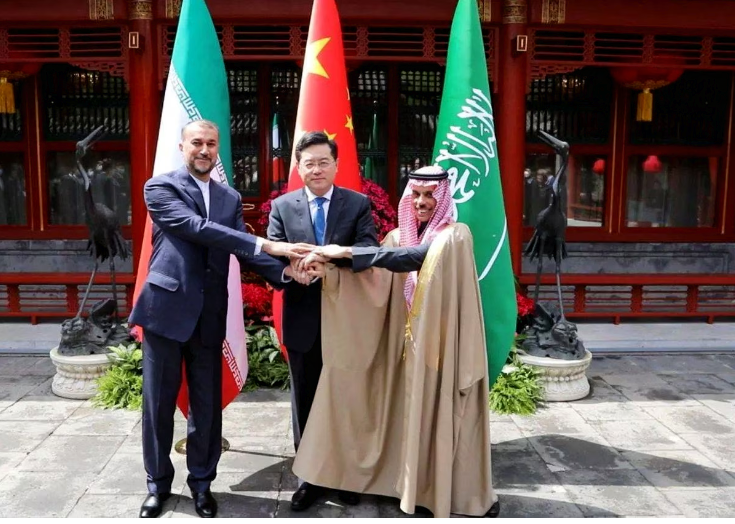Top Iranian, Saudi Envoys Meet in China
Following China's mediation of a deal to restore relations between Iran and Saudi Arabia last month, the foreign ministers of both nations met in Beijing on Thursday for the first formal gathering of their top diplomats since 2016, when relations between the two countries became highly contentious.

Facts
- Following China's mediation of a deal to restore relations between Iran and Saudi Arabia last month, the foreign ministers of both nations met in Beijing on Thursday for the first formal gathering of their top diplomats since 2016, when relations between the two countries became highly contentious.1
- This meeting was capped by an announcement that diplomatic ties will be formally restored, regional stability will be a major priority, and economic cooperation will be pursued.2
- The two sides also agreed to examine ways to expand their cooperation, such as resuming flights between the two countries, mutual trips by official delegations and the private sector, and facilitating visas, with embassies in Riyadh and Tehran and consulates in Jeddah and Mashhad to be opened.3
- The meeting coincided with a visit by French Pres. Emmanuel Macron and EU chief Ursula von der Leyen to Beijing seeking to convince Chinese leader Xi Jinping to push for an end to the conflict in Ukraine.4
- The countries formally broke ties in 2016 after Saudi Arabia executed Shia leader Nimr al-Nimr and Iranian protesters attacked Saudi diplomatic missions, as tensions between the two regional rivals had already flared in the years prior.5
- Last month, Iran and Saudi Arabia issued a surprise joint statement, co-signed with China, to restore diplomatic relations after days of negotiations in Beijing and both countries expressed appreciation to China for its role in sponsoring the talks.6
Sources: 1Reuters, 2Associated Press, 3CNN, 4France 24, 5Al Jazeera, and 6Guardian.
Narratives
- Pro-China narrative, as provided by Global Times. China has just proven that the US style of creating conflict to pit nations against one another is no way to achieve regional peace anywhere, let alone in the Middle East. These nations are fed up with war, and China has offered them an opportunity to slip out from under the thumb of the US and engage in legitimate, autonomous diplomacy with a different global power. This is the beginning of a new era, one in which countries don't have to cower in the face of Western might just to build economic success.
- Anti-China narrative, as provided by FT. While it does seem that China's goals in the Middle East are limited to energy and economic relations, what Beijing hasn't yet faced are the dire security problems that come with doing business in the region. Words like "common interests" and "political dialogue" are all good in theory, but only time will tell if Beijing can achieve these lofty goals in the face of rising militant groups and sporadic conflict.






